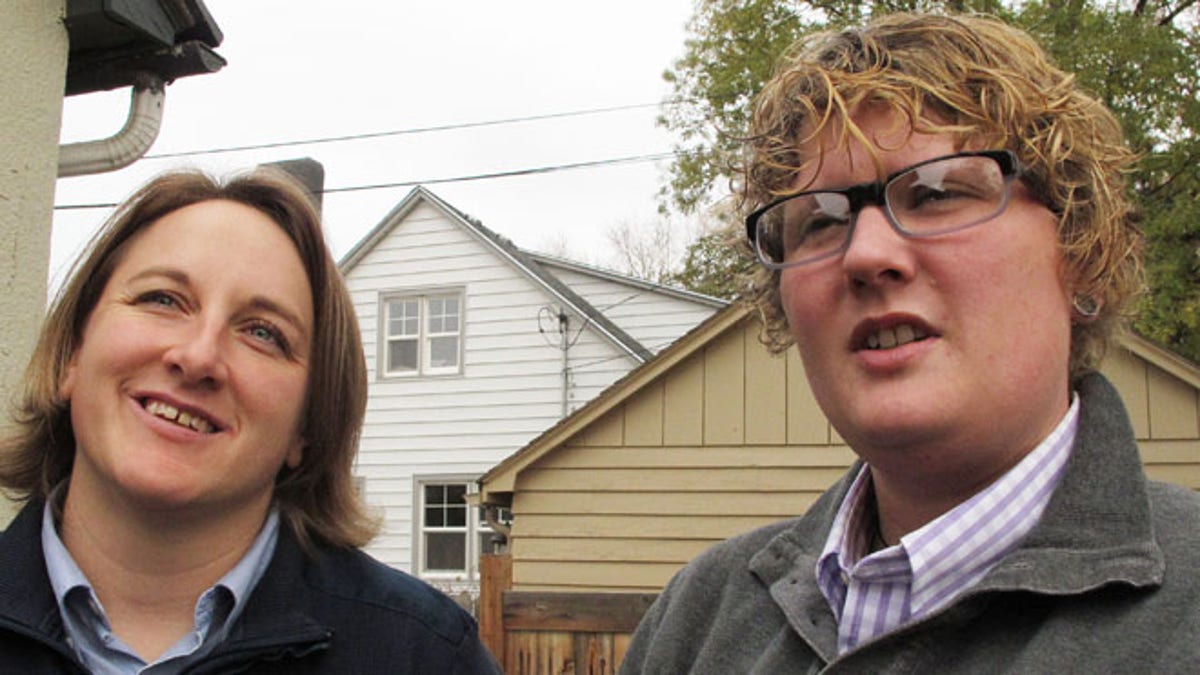
Nov. 8, 2013: Amber Beierle, left, and Rachael Robertson talk about their role as plaintiffs in a federal lawsuit at their home in Boise, Idaho. (AP)
Four Idaho couples are suing the state in federal court to challenge laws banning same-sex marriage and denying recognition to same-sex couples who married in other states.
Sue Latta and Traci Ehlers, Lori and Sharene Watsen, Shelia Robertson and Andrea Altmayer, and Amber Beierle and Rachael Robertson filed the lawsuit in Boise's U.S. District Court on Friday. Their lawsuit brings the first challenge to Idaho's constitutional ban of same-sex marriage since the U.S. Supreme Court made two key decisions bolstering the legal status of such marriages earlier this year.
The women, who are represented by two local attorneys and the National Center for Lesbian Rights, contend that Idaho's laws violate the U.S. Constitution's guarantees of equal protection and due process.
The state has not yet responded to the lawsuit.
"Idaho's exclusion of same-sex couples from marriage and refusal to respect existing marriages undermines the plaintiff couples' ability to achieve their life goals and dreams, disadvantages them financially, and denies them 'dignity and status of immense import,'" the women wrote in their lawsuit. "Further, they and their children are stigmatized and relegated to a second-class status by being barred from marriage."
The lawsuit utilizes a legal strategy that has been effective in a similar case arising out of Ohio, arguing that the state has historically recognized marriages performed in other states that would have been considered illegal under Idaho law, such as marriage between people of different races. Idaho law barred marriages between white people and other races until 1959. The U.S. Supreme Court ruled those types of laws were unconstitutional in 1967.
Earlier this year, the U.S. Supreme Court ruled that same-sex couples are entitled to federal benefits. The high court also declined to decide a case from California this year, leaving in place a lower court's ruling that struck down a ban on same-sex marriage in that state.
In the Idaho lawsuit, the women note that they are allowed to file joint federal tax returns just as any married couple may, but that they are prohibited from joint tax filing status in Idaho, forcing them to file separately here. They also note that they lack the right in Idaho to make decisions for an ill or incapacitated spouse, the right to recognition as a legal parent, and a host of other rights and responsibilities otherwise afforded to married couples in the state.












































